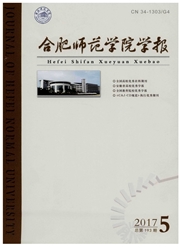

 中文摘要:
中文摘要:
清代以来,侗族民间产生的各种文书中有许多事涉分家析产、离异休妻、家庭事务调解和邻里纠纷的文书,字里行间无不显示出引发事端的各种冲突在传统习惯法调节下得以解决;调解时的法理依据与手段,往往通过族长、或族中有威望长者、文化人身份的乡绅斡旋;侗族传统社会的协调机制,从文书中看在法理上是与“侗款”相一致的习惯法,在程序上则是族长等乡族领袖——他们是习惯法的传承者,也是执行者。
 英文摘要:
英文摘要:
Since the Qing Dynasty, many different documents by the Dong are related with dividing up fami- ly property and living separately, divorcing one' s wives, mediating family affairs and neighborhood disputes. From these documents, it is easy to find that all the conflicts were solved with the mediation of traditional cus- toms. The legal basis and method in mediation were often operated by the patriarchs, the prestigious clan elders or the country gentlemen who had the identity of intellectuals. The traditional coordination mechanism in the Dong society was legally customary, i.e. Dong Paragraph, while in the procedures, the clan leaders such as pa- triarchs, who were the descendants, were the performers of the customs (common law).
 同期刊论文项目
同期刊论文项目
 同项目期刊论文
同项目期刊论文
 期刊信息
期刊信息
